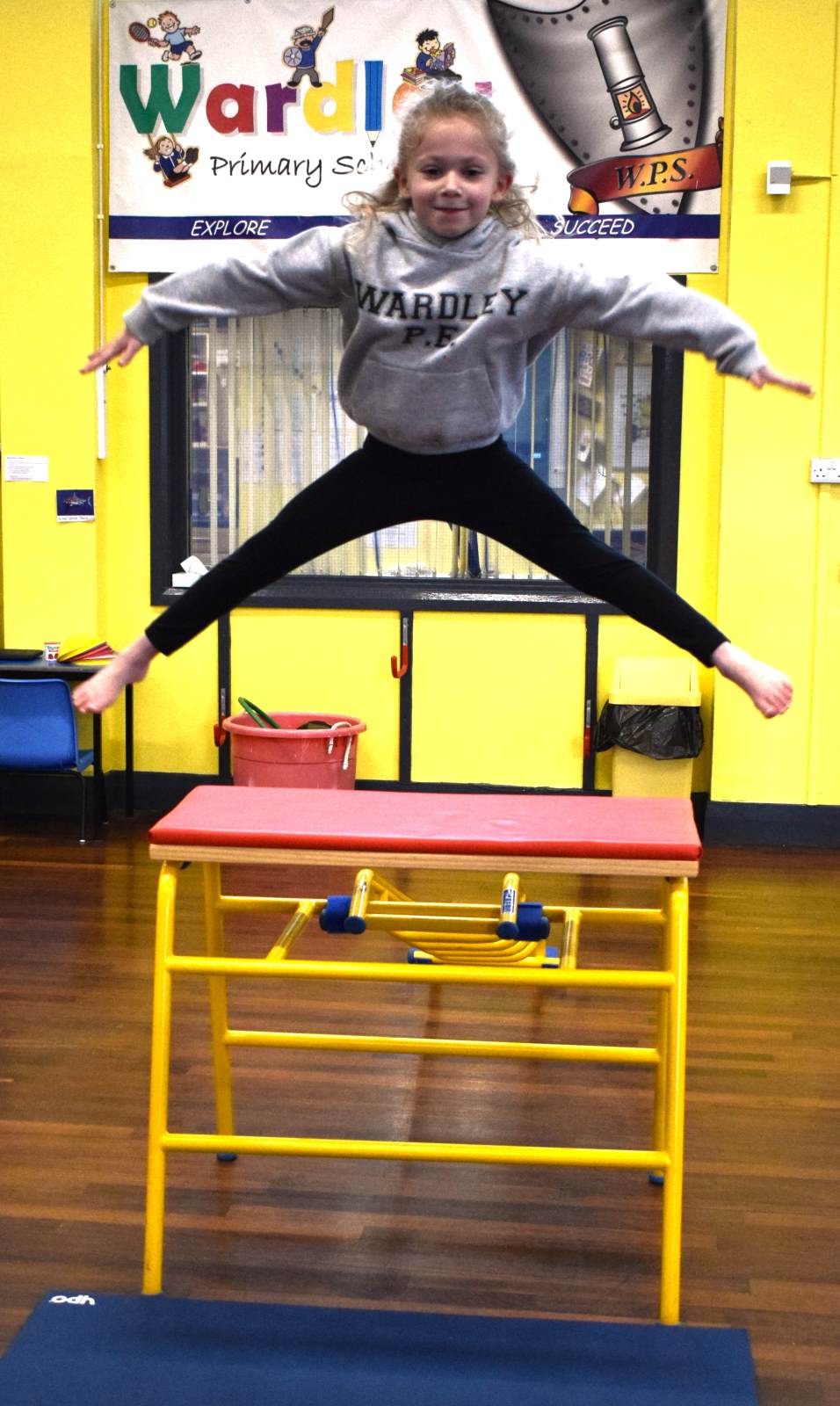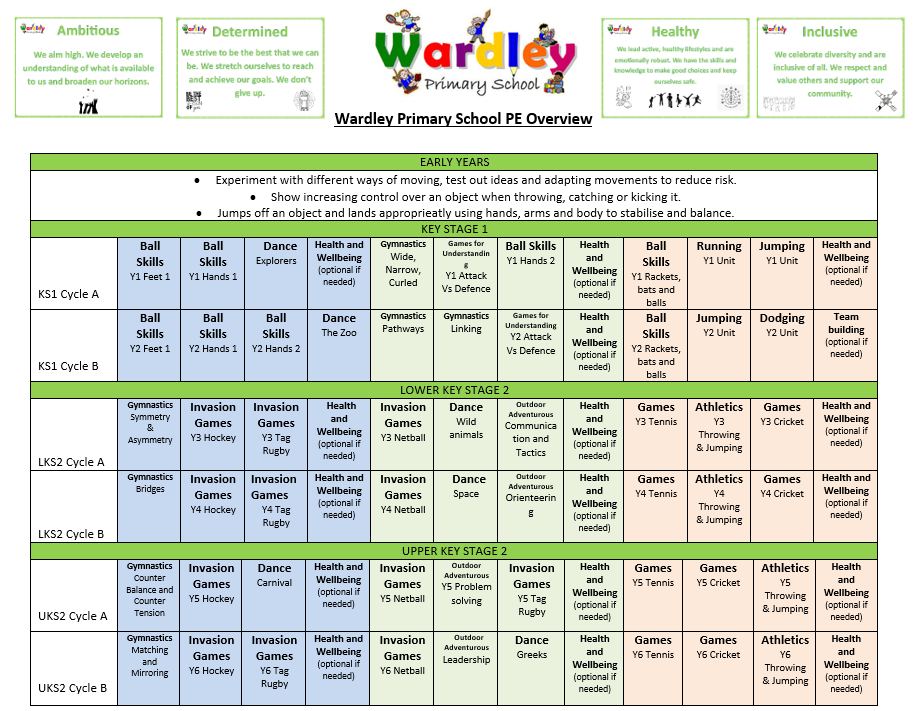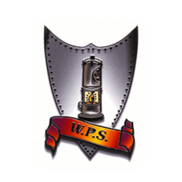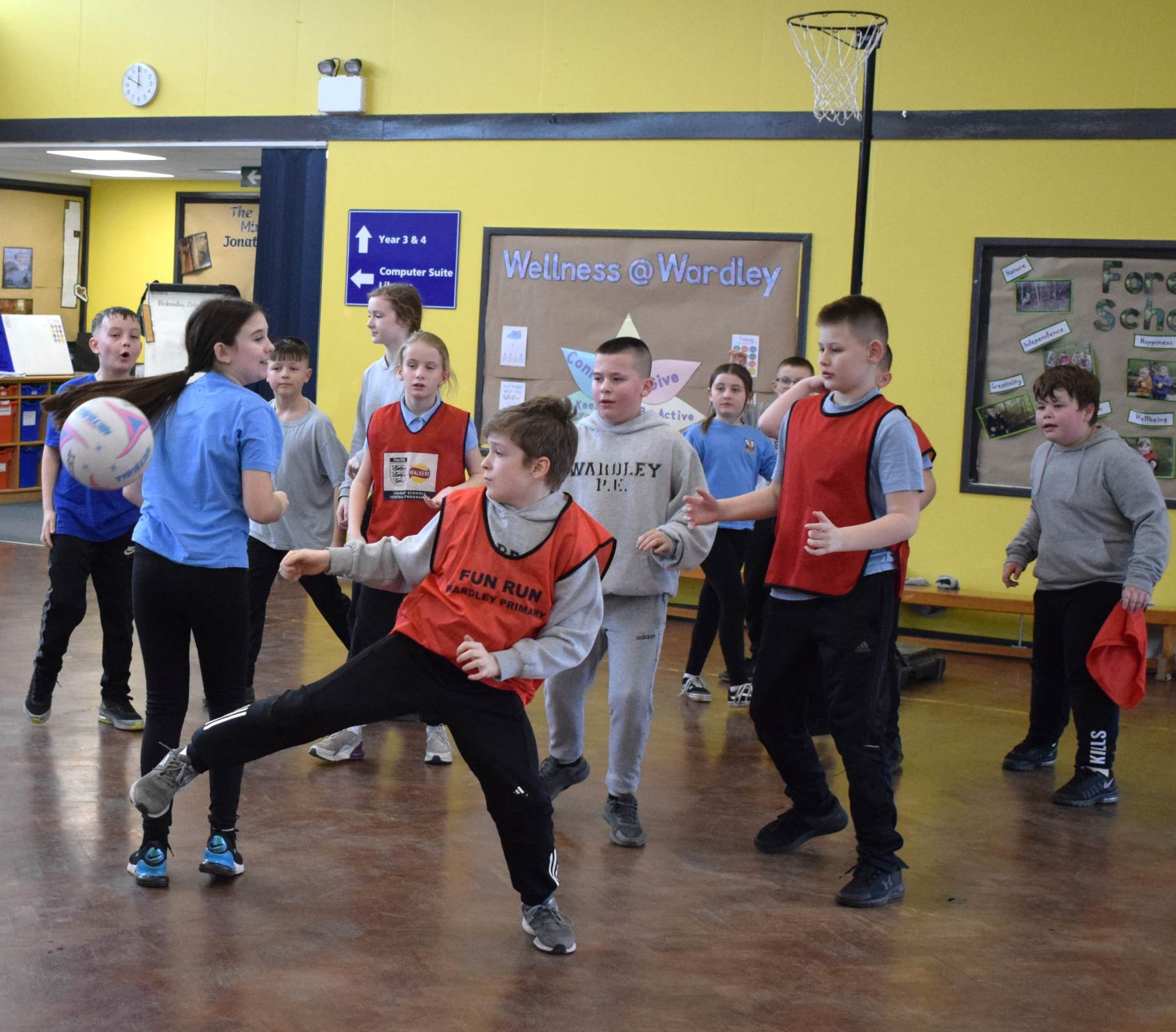
Physical Education (PE)
Physical Education (PE) at Wardley Primary school plays a crucial role in fostering the holistic development of young learners, focusing on the enhancement of their physical, social, emotional, and cognitive well-being. This subject goes beyond traditional sports and games, aiming to instil a lifelong love for physical activity and healthy living. The primary PE curriculum is designed to cater to the unique needs and abilities of children aged 5 to 11, laying the foundation for a healthy and active lifestyle. Competition is encouraged through events and festivals within and outside of the Local Authority which offer a range of opportunities to experience sporting success and achievement. Our wider school sports provision offers children an extensive range of extra-curricular sporting clubs, many of which have routes into external clubs – this helps children to see opportunities to develop their expertise further and compete outside of and beyond school.
Key Objectives:
1.Physical Development: Primary PE aims to develop fundamental movement skills, including agility, balance, coordination, and strength. Through a variety of activities, children build their motor skills, ensuring a solid foundation for future physical activities and sports.
2.Health and Well-being: The curriculum emphasizes the importance of maintaining a healthy lifestyle. Students learn about nutrition, hygiene, and the benefits of regular exercise, helping them make informed choices that contribute to their overall well-being.
3.Social and Emotional Learning: PE provides a platform for students to develop social skills such as teamwork, cooperation, and communication. Through collaborative activities, they learn to appreciate diversity and respect each other's abilities, fostering a positive and inclusive environment.
4.Cognitive Development: PE contributes to cognitive development by challenging students to think critically, make decisions, and solve problems in a physical context. Activities promote strategic thinking, spatial awareness, and decision-making skills.
5.Personal and Social Responsibility: Students are encouraged to take responsibility for their own health and well-being. They learn the importance of fair play, sportsmanship, and respecting rules, contributing to the development of responsible and ethical individuals.
As a school, we have mapped out the key skills and knowledge required in PE across the primary phase to ensure coverage and depth of learning. Our school progression document and policy for physical education is shown :

Click on the links below to view the knowledge and skills taught within each unit.
| KS1 Cycle A |
|
|
|
| KS1 Cycle B |
|
|
|
| LKS2 Cycle A |
|
|
|
| LKS2 Cycle B |
|
|
|
| UKS2 Cycle A |
Counter balance and counter tension
|
|
|
| UKS2 Cycle B |
|
|
|
National Curriculum Aims
The national curriculum for physical education aims to ensure that all pupils:
- develop competence to excel in a broad range of physical activities
- are physically active for sustained periods of time
- engage in competitive sports and activities
- lead healthy, active lives.
Key stage 1
Pupils should develop fundamental movement skills, become increasingly competent and confident and access a broad range of opportunities to extend their agility, balance and coordination, individually and with others. They should be able to engage in competitive (both against self and against others) and co-operative physical activities, in a range of increasingly challenging situations.
Pupils should be taught to:
- master basic movements including running, jumping, throwing and catching, as well as developing balance, agility and co-ordination, and begin to apply these in a range of activities
- participate in team games, developing simple tactics for attacking and defending
- perform dances using simple movement patterns.
Key stage 2
Pupils should continue to apply and develop a broader range of skills, learning how to use them in different ways and to link them to make actions and sequences of movement. They should enjoy communicating, collaborating and competing with each other. They should develop an understanding of how to improve in different physical activities and sports and learn how to evaluate and recognise their own success.
Pupils should be taught to:
- use running, jumping, throwing and catching in isolation and in combination
- play competitive games, modified where appropriate [for example, badminton, basketball, cricket, football, hockey, netball, rounders and tennis], and apply basic principles suitable for attacking and defending
- develop flexibility, strength, technique, control and balance [for example, through athletics and gymnastics]
- perform dances using a range of movement patterns
- take part in outdoor and adventurous activity challenges both individually and within a team
- compare their performances with previous ones and demonstrate improvement to achieve their personal best.
Swimming and water safety
All schools must provide swimming and at Wardley this is in done in Year 5 within key stage 2.
In particular, pupils should be taught to:
- swim competently, confidently and proficiently over a distance of at least 25 metres
- use a range of strokes effectively [for example, front crawl, backstroke and breaststroke]
- perform safe self-rescue in different water-based situations.


